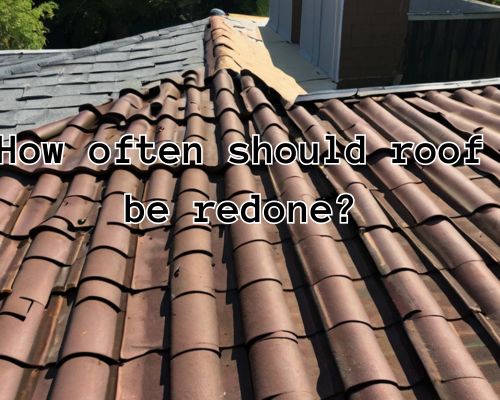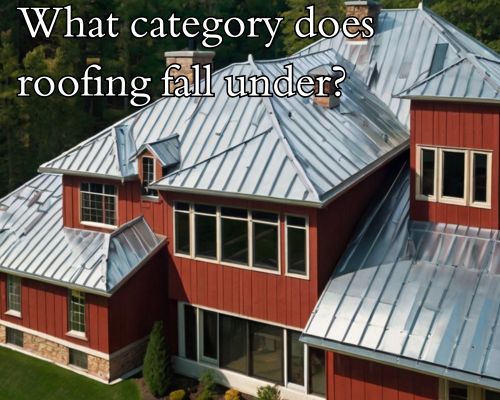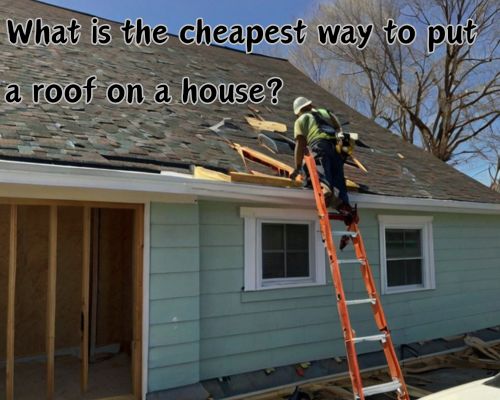Your roof is one of the most critical components of your home, protecting you from the elements and ensuring structural integrity. But like any part of your house, it doesn’t last forever. If you’re a homeowner in New Jersey, understanding when and how often your roof should be replaced is essential for maintaining property value and preventing costly repairs.

How Often Should You Replace Your Roof?
The frequency at which a roof should be redone depends on multiple factors, including material type, weather conditions, and proper maintenance. Here’s a general breakdown based on roofing materials:
- Asphalt Shingles (most common in New Jersey) – 15 to 30 years
- Metal Roofs – 40 to 70 years
- Slate Roofs – 75 to 100+ years
- Wood Shingles/Shakes – 20 to 40 years
- Flat Roofs (TPO, EPDM, Modified Bitumen) – 10 to 30 years
Given the climate conditions in New Jersey, which include harsh winters, humidity, and occasional hurricanes, your roof may experience more wear and tear compared to homes in milder regions.
Signs That Your Roof Needs Replacement
Even if your roof hasn’t reached its maximum lifespan, certain signs indicate that it may need to be redone sooner:
- Curling or Missing Shingles – Asphalt shingles tend to curl or break off over time, leaving your home vulnerable to water damage.
- Frequent Leaks and Water Damage – If you notice water stains on your ceiling or in your attic, your roof may have failed.
- Sagging Roof Deck – A drooping or sagging roofline can indicate serious structural issues.
- Moss and Algae Growth – In areas with high moisture like New Jersey’s coastal towns (e.g., Atlantic City, Cape May), moss growth can deteriorate shingles quickly.
- Granules in Gutters – If you see an excessive amount of roofing granules in your gutters, it’s a sign your shingles are breaking down.
Factors That Affect Roof Longevity in New Jersey
Several local factors impact how often a New Jersey roof needs to be replaced:
- Weather Extremes: Snowstorms, Nor’easters, hurricanes, and summer heatwaves can accelerate roof wear.
- Proximity to the Coast: Homes in Jersey Shore areas like Ocean City and Long Beach Island face salt exposure, which can corrode certain roofing materials.
- Tree Cover: Dense tree coverage in areas like Morris County and Bergen County can lead to excessive moisture retention and moss growth.
- Roof Maintenance: Regular inspections, cleaning, and minor repairs can extend your roof’s lifespan by several years.
Cost of Roof Replacement in New Jersey
The cost of replacing a roof varies depending on the size of your home, the materials used, and labor costs. Here’s a rough estimate of roof replacement costs in New Jersey:
- Asphalt Shingles: $5,000 – $12,000
- Metal Roofing: $15,000 – $40,000
- Slate Roofing: $20,000 – $50,000+
- Flat Roof (TPO/EPDM): $7,000 – $15,000
Labor costs in Newark, Princeton, and Cherry Hill may be higher due to demand, while rural areas might offer more competitive pricing.
Should You Repair or Replace Your Roof?
Many homeowners wonder whether they should replace their roof entirely or opt for a repair. Here’s a general guideline:
- Repair your roof if: Damage is localized, such as a few missing shingles, minor leaks, or small punctures.
- Replace your roof if: Your roof is over 20 years old, experiencing widespread damage, or has structural issues that repairs won’t fix effectively.
Best Time of Year to Replace Your Roof in New Jersey
The best time for roof replacement in New Jersey depends on weather conditions and contractor availability:
- Spring & Fall: Ideal weather conditions make these seasons the best for roof replacements.
- Summer: Warm temperatures are great for roofing materials, but high demand can increase costs.
- Winter: Cold weather can make asphalt shingles brittle, but some contractors like CJ Commercial Roofing NJ offer discounts for winter installations.
Finding a Reliable Roofing Contractor in New Jersey
Choosing the right roofing contractor is crucial for a long-lasting and high-quality roof installation. When searching for a roofing company in New Jersey, consider the following:
- Check Licensing & Insurance: Ensure the contractor is licensed to operate in New Jersey and carries liability and worker’s compensation insurance, see CJ Commercial Roofing NJ.
- Read Reviews & Get References: Look at customer reviews on platforms like Google My Business, Yelp, and the Better Business Bureau (BBB).
- Ask About Warranties: A reputable roofer should provide material and labor warranties.
- Compare Quotes: Get at least three estimates from different contractors to compare pricing and services.
- Local Experience Matters: Contractors familiar with New Jersey building codes and weather conditions will offer better advice and installation quality.
Final Thoughts: When Should You Redo Your Roof in New Jersey?
Your roof is an essential part of your home’s safety and value. In New Jersey, factors like extreme weather, humidity, and coastal conditions mean homeowners should be proactive about roof maintenance and replacement. Whether your home is in Trenton, Hoboken, or Cherry Hill, regular roof inspections and timely replacements will save you from costly damage down the line.
If you’re unsure about the state of your roof, schedule a professional inspection with a certified New Jersey roofing contractor today. Investing in a new roof at the right time ensures that your home remains protected for years to come.

